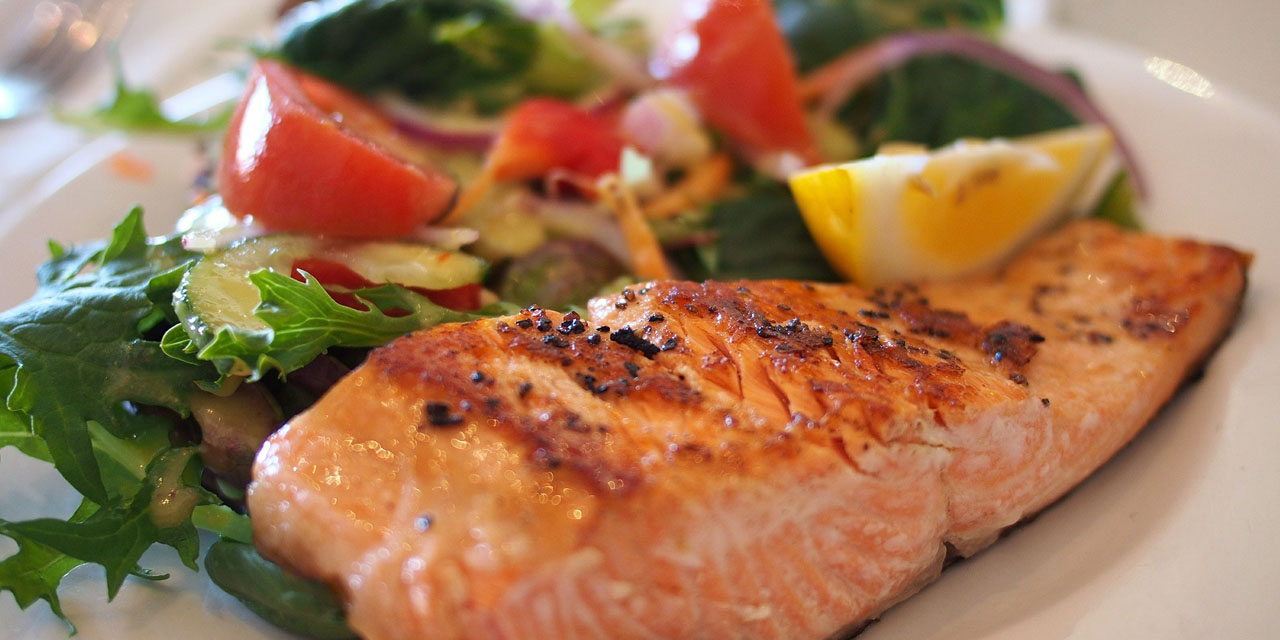Certain foods, such as vegetables, fruits and fish, have the effect of reducing the risk of developing cardiovascular disease.
Monday in "Without appointment" on Europe 1, the nutritionist Jacques Fricker gives some examples of diets that protect our heart.
INTERVIEW
Taking care of our heart by watching our plate is possible.
Many studies over the years have focused on determining which foods protect it, which have no effect, and which are harmful.
In
Take your heart to
heart, published by Odile Jacob editions, the nutritionist Jacques Fricker has combined the results of several years of research and offers an overview of the foods to favor to take care of our exciting.
Monday at the microphone of Europe 1, he details three types of particularly beneficial regimes.
“And all are adaptable according to tastes and habits,” he recalls.
The Mediterranean diet
Among the heart-healthy diets, the Mediterranean diet is the one that most closely resembles the eating habits of the French.
It is based on a large quantity of fruits and vegetables, present at each meal as a starter, main course or salad.
"Fruits and vegetables protect the heart and the brain because they help lower our blood pressure. They are also rich in vitamins, minerals and polyphenols, which have an anti-inflammatory, antioxidant and antithrombotic ", explains Jacques Fricker.
He recommends consuming five fruits and vegetables per day - per serving of about 100 grams - both cooked and raw, as long as they are not crushed.
"When we consume compotes or smoothies, there is too rapid assimilation of vitamins and carbohydrates, which is not good for the heart or for diabetes."
>> Find all of Sans rendez-vous every day from 3 p.m. to 4 p.m. on Europe 1 as well as in replay and podcast here
Olive oil, an essential product of the Mediterranean diet, is also beneficial for the heart because it is rich in polyphenol.
Otherwise, we can bet on rapeseed or walnut oil, both rich in Omega 3. These fatty acids, which are found in large quantities in fish for example, reduce the risk of developing heart disease.
The DASH diet
This diet was developed by cardiologists in the late 1980s to combat high blood pressure through diet.
It contains a lot of vegetables but also a large amount of foods rich in magnesium, such as lentils and chickpeas.
There are also dairy products low in fat, such as milk or yogurt, as well as lean meat, poultry or fish.
The centerpiece of the DASH diet is reducing salt intake, which goes a long way in lowering hypertension.
"This diet has a spectacular result on blood pressure. It thus lowers the risk of stroke and heart attack," says Jacques Fricker.
The vegetarian diet
"The vegetarian diet protects the heart but not the arteries, unlike the DASH and the Mediterranean, which protect both."
This is due to deficiencies in certain vitamins, such as B12, and Omega 3, since we do not eat fish.
This vegetable-rich diet is still beneficial, as long as you replace meat with pulses, such as peas, beans and beans, and not processed foods, like processed soybean steaks.
"In any type of diet, you have to try to cook the simplest and least processed foods possible", concludes Jacques Fricker.

